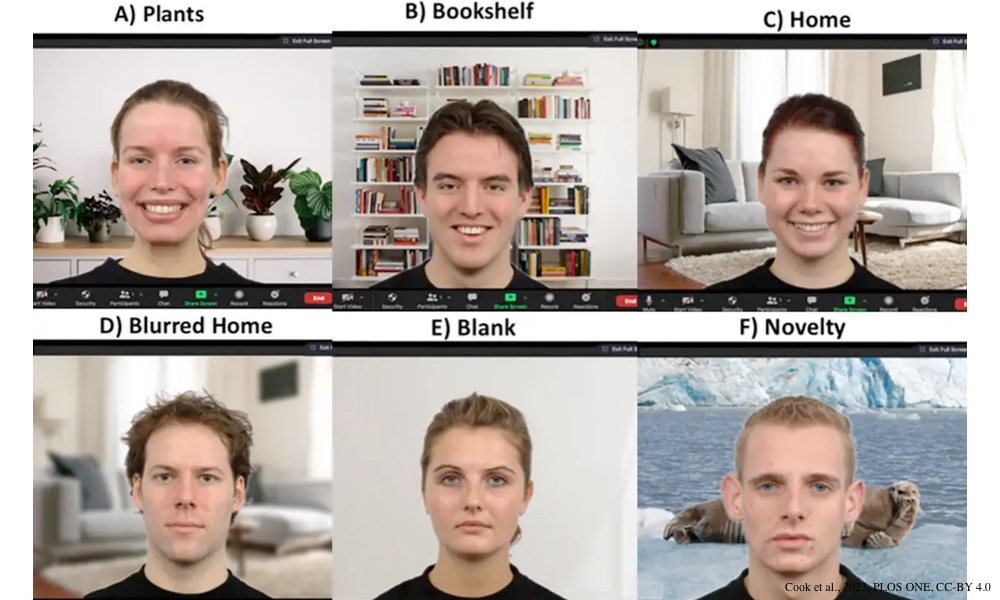First impressions are important, especially when it's for something consequential, like getting hired for a job. The way people meet and interview has changed, however, since the start of the SARS-CoV-2 pandemic.
Videoconferencing platforms such as Zoom have become the new normal, with many first impressions occurring virtually. Few studies have examined what goes into the first impression people make during a video call. How does the background behind a person on a video call or their facial expressions affect how we feel about them?
A recent study by researchers at Durham University in the United Kingdom looked at how gender, facial expression and the background affect others' perception of a person's competence and trustworthiness in a videoconference. Unsurprisingly, people who smiled were generally thought to be more competent and trustworthy than those with a neutral expression. Having a bookcase or houseplants in the background tended to make a person seem more competent and trustworthy than those who had a different background.
“This research shows how our Zoom backgrounds can affect the first impressions we make, ” the researchers said, in a statement. In particular, context can influence the impressions people make, Paddy Ross, corresponding author on the study, told TheDoctor. “In this case, books may give the impression of intelligence and plants may convey a sense of responsibility, that the person can keep plants alive.“Participants reported how competent and trustworthy they felt each face was depending on the person's expression and the background of the videoconference screen.
The researchers asked 167 adults to view images that appeared to have been captured during a videoconference. Each image was either of a man or a woman, either smiling or with a neutral expression.
A living room, a blurred living room, houseplants, a bookcase, a blank wall, or a novelty image of an iceberg or a walrus were in the background of each image. Participants reported how competent and trustworthy they felt each face was and the person's expression and the type of background behind them were noted in each case.
Faces with a living room or a novelty image background were believed to be the least trustworthy and competent. A background with a living room may give the impression that a person is not working in a traditional office or has not given any thought to their background image, said Ross, an associate professor of psychology at Durham University.
Female faces were thought to be more competent and trustworthy than male faces. This is in line with other studies that have found faces with softer features are perceived as more trustworthy. However, female faces against a living room background were believed to be no less trustworthy than female faces against a bookcase or houseplant background. This finding suggests that most of those with a living room background who were thought to be less trustworthy were men.
Women were believed to be as competent as men when viewed against houseplants or a bookcase, Ross said. And the competence of men was thought to be much lower than that of women if their background was a living room or a novelty image.
Ross and his team are currently looking to see if the findings of the current study are applicable when video footage of people is used instead of still images. They also want to see if first impressions made on a video call influence hiring decisions. Other future studies might look at the applicability of these findings across different cultures. The image database the researchers used featured mostly white individuals.
If you have a business videoconference coming up, you can download a background image of a bookcase or set up your call so there are some books and plants in the background. Keep it simple. You don't want the background to be distracting.
The study is published in PLOS One.





